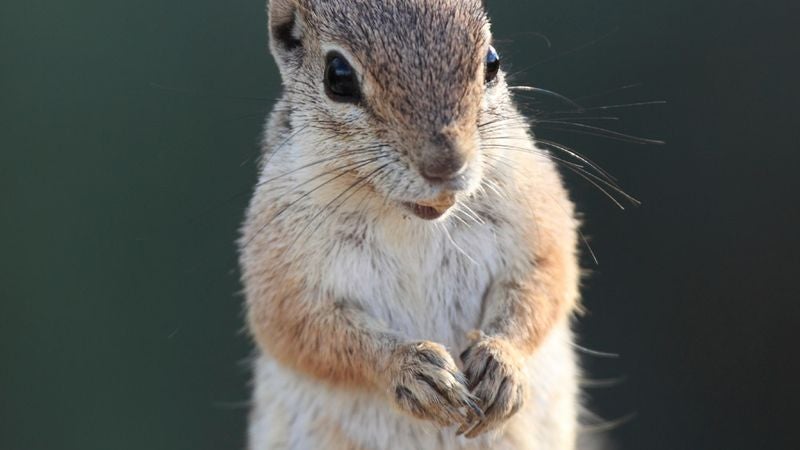WASHINGTON—The Department of the Interior announced this week that ongoing negotiations with the nation’s population of spotted ground squirrels have been resolved and that the rodents are now contracted to continue activities on U.S. soil through Dec. 31, 2015.
“We’re happy to have finally reached an agreement with this vital American species, and we thank all the ground squirrels who have been carrying on in good faith for the past 18 months while we worked this out,” a jubilant but visibly exhausted Interior Secretary Ken Salazar told reporters at a press conference Tuesday. “Their continued participation in our forests, meadows, and prairies is an integral part of our natural world, and I think our generous offer reflects that fact.”
Under the terms of the agreement, which was conducted through third-party labor mediators, the ground squirrels will be responsible for scurrying up and down trees; rustling in undergrowth; chittering; and eating a variety of seeds, berries, and nuts.
The contract stipulates the nation’s spotted ground squirrels be paid $345 million over five years and also provides for performance-based bonuses.
“This amount is well in line with the compensation of other North American wildlife, and when you factor in the spotted ground squirrels’ vast range of distribution across the country, it’s actually quite a value,” said Ray Chen, who represented the squirrels during arbitration. “The government is getting a tremendous bargain on Xerospermophilus spilosoma, especially when you consider what they’re currently paying the white-tail deer.”
Negotiations between Chen’s firm of Hannigan, Chen & Falbaum and the Interior Department took nearly two years, and at one point reportedly grew so strained that the government considered opening the bidding to blue jays, marmots, and Lockheed Martin.
A deal was reached only after the ground squirrels acquiesced to signing a non- compete clause that forbids the animals from pursuing foraging opportunities in the Asian or Latin American markets.
“We think this was a deal that had to happen, and both sides are satisfied,” said assistant secretary for wildlife Tom Strickland, who originally balked at the ground squirrel’s terms and was chastised by the pro-squirrel-labor lobby for his use of the “disparaging and insensitive” slang term “gopher” during a television interview early in the negotiations. “I admit the road here was rocky, and we wish they had given a little on the three-month’s hibernation. But no one wanted a return to the strike years of the 1970s, when unburied nuts were piling up on curbs by the thousands.”
Because government representatives were unable to move the ground squirrels on several key points, including nesting in attics and garages, and appearing suddenly in the middle of the road for no apparent reason, the contract is essentially the same as the previous agreement, which held from 1998 to 2009.
The Interior Department denied that national-park fees would increase to cover the ground squirrels’ new contract and insisted that the cost of the most hotly contested portion of the agreement, a provision for comprehensive heath care extending well into retired squirrels’ fourth year of life, was included in the total divulged cost.
“Worse comes to worst, we’re not locked in to anything, since it’s just a five-year deal,” Salazar said. “And now that this is behind us, we can turn our attention to making sure we get that contact signed with the bald eagles, who have been threatening to move their operations to Mexico since June.”







